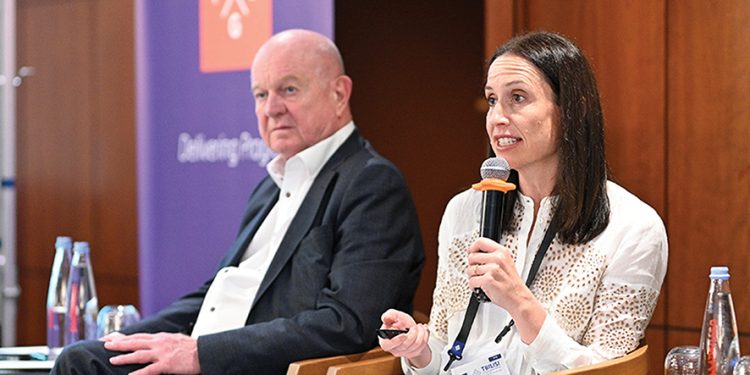On May 4, PMCG hosted the “Green City: Transforming Urban Landscapes for a Sustainable Tomorrow” panel discussion as part of the Asian Development Bank’s (ADB) 57th Annual Meeting in Tbilisi, Georgia.
Bearing the slogan “Bridge to the Future,” this year’s edition of the ADB’s Annual Meeting spanned May 2-5 and convened around 4,000 participants from over 60 countries. Therein, sustainability, the green economy, and climate change mitigation were among several hot topics covered across dozens of well-attended seminars, panel discussions, and other events.
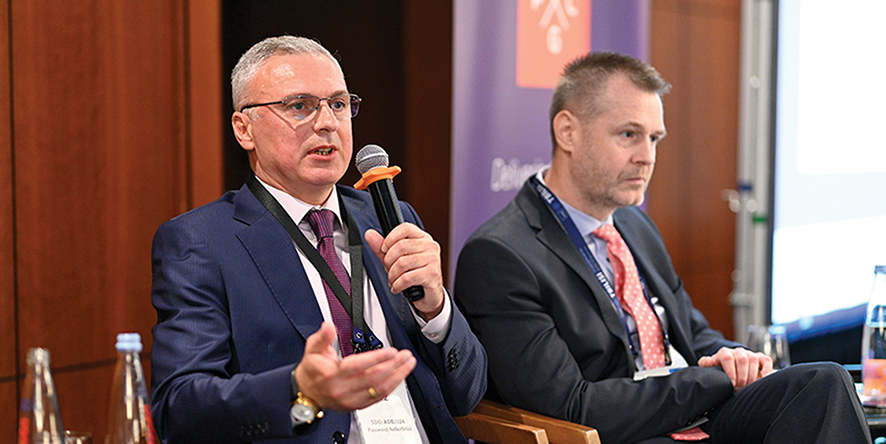
Green City Concept – Addressing Urban Population Growth
Although they cover only 3 percent of the Earth’s land area, cities accommodate more than half of the world’s population and consume between 60 and 80 percent of its vital resources, including energy and water. In addition, they are major contributors of carbon emissions as well as air and water pollution, thereby accelerating climate change and environmental degradation.
Over the past few decades in particular, urban populations worldwide have surged. Indeed, according to UN projections, approximately 70 percent of the world’s population will reside in cities by 2050. Alarmingly, many cities are already struggling to provide residents with sustainable economic, social, and environmental support, as encapsulated in the idea of a “green city.”
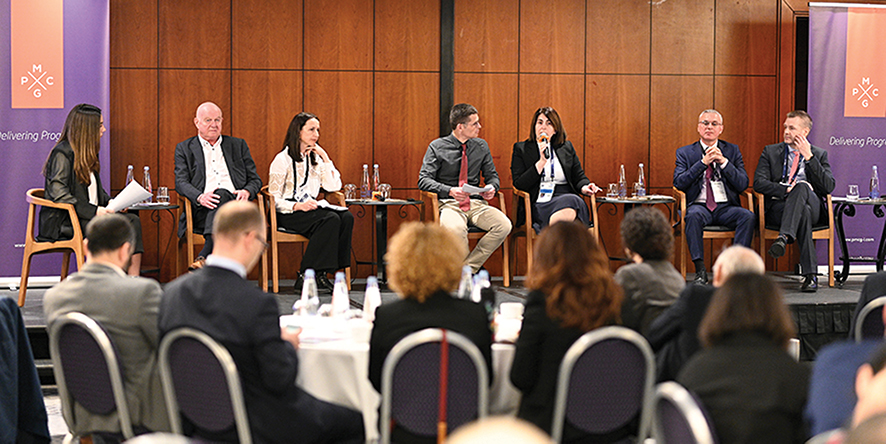
The concept of a green city revolves around its ability to sustain itself by leveraging the natural environment, leaving the smallest possible ecological footprint and causing minimal pollution. Notably, the journey to becoming a green city involves increasing the efficiency of land use. In addition, it entails harnessing renewable energy sources, composting organic waste, recycling materials, and converting waste into energy. Meanwhile, responsible water management, eco-friendly buildings, sustainable urban transport (including electrified mobility), as well as cultivating local food sources and shortening supply chains are all integral parts of any truly green city. At the same time, investing in research and education and preserving cultural heritage are other key aspects of the green city concept.
Green Cities on the Rise, but Challenges Remain
Ultimately, green cities do not focus exclusively on physical infrastructure; they are equally concerned with social sustainability, emphasizing inclusivity and equality, and fostering healthy communities.
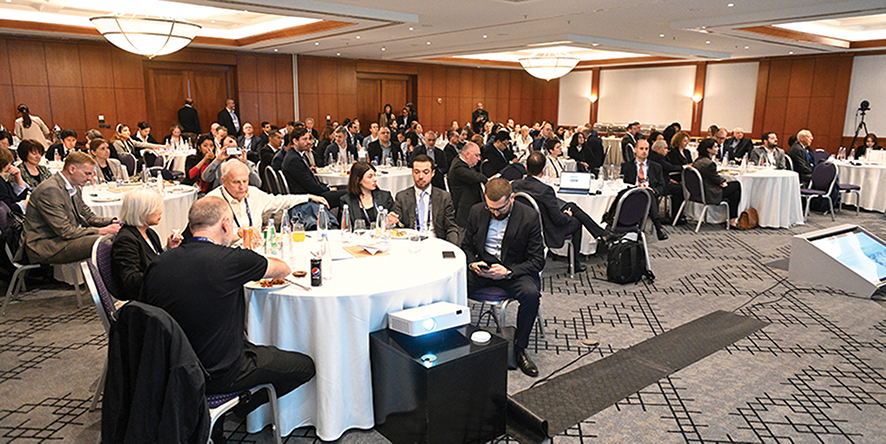
Even though the green city concept is growing in popularity worldwide and green city action plans are being widely adopted, challenges persist. In this regard, international financial institutions, including prominently the ADB, have been instrumental in supporting cities to pursue the sustainable goals underpinning the green city idea. However, despite such substantial efforts, obstacles remain.
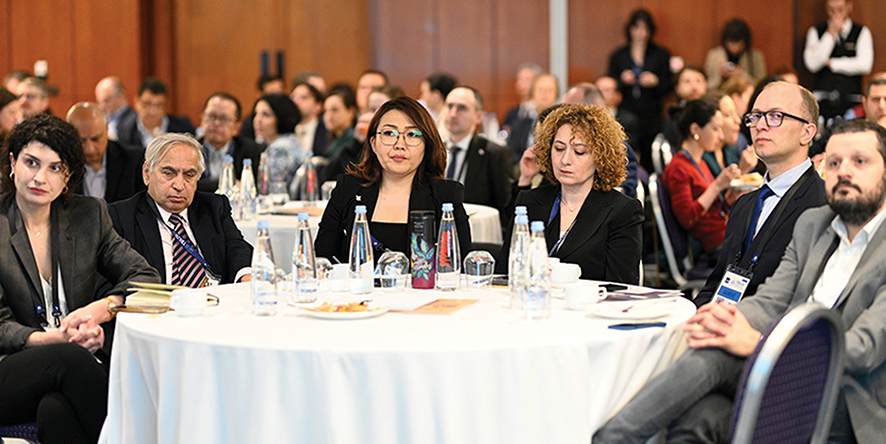
With these developments and challenges in mind, PMCG – Policy and Management Consulting Group hosted a panel discussion featuring an illustrated range of speakers from international financial institutions, governments, and private businesses. Revealing many insights, the discussion explored effective strategies to enhance urban living standards and minimize cities’ environmental impacts.
To kick off the discussion, welcoming remarks were delivered by Aleksi Aleksishvili (CEO and Chairman, PMCG), Mzia Giorgobiani (Deputy Minister of Regional Development and Infrastructure of Georgia), and Andria Basilaia (Deputy Mayor of Tbilisi).
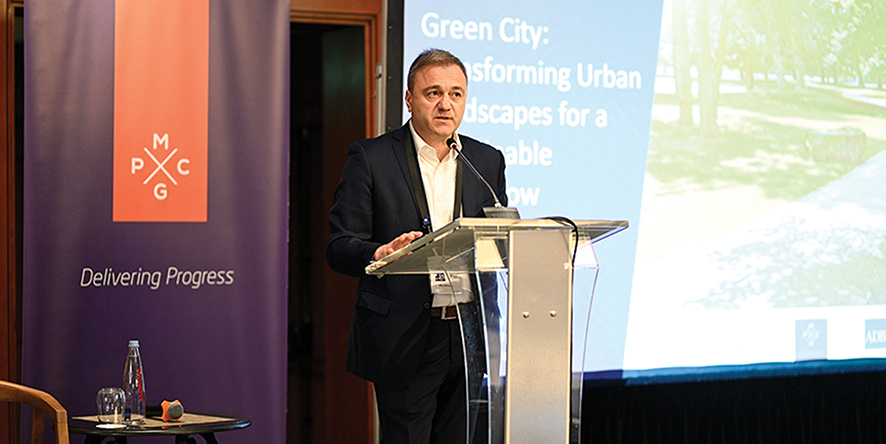
Thereafter, Giorgobiani stayed on for the discussion, along with Kate Hughes (Principal Climate Change Specialist, Climate Change and Sustainable Development Department, ADB), Atze Verkennis (Director, Global Practice Regional and Urban Development, Ecorys), Jan von Vogt (Regional Director, Urban Water Management/Waste Division, Fichtner Water & Transportation Gmbh), Zviad Kharebava (Environment and Infrastructure Development Director, PMCG), and Ondrej Kokes (Projects Principal, Mott Macdonald).
The speakers discussed various aspects of green cities, including energy, waste management, water management, urban transport, the circular economy, and climate change.
Keeping the dialogue flowing was moderator Nino Enukidze (Rector, Business and Technology University).

